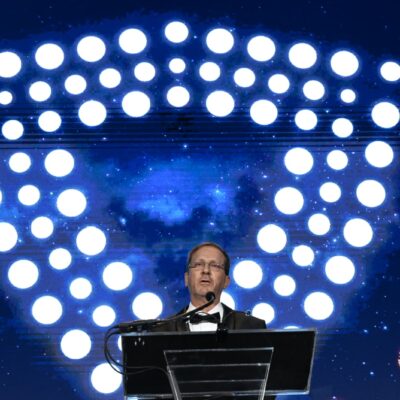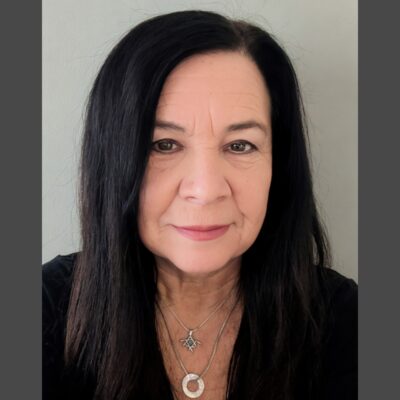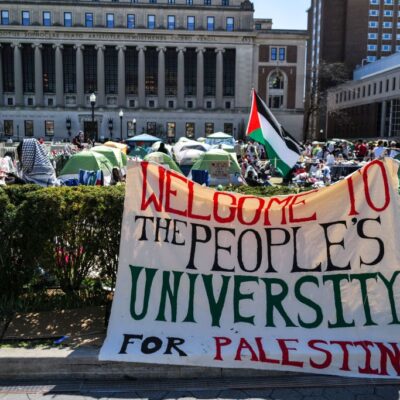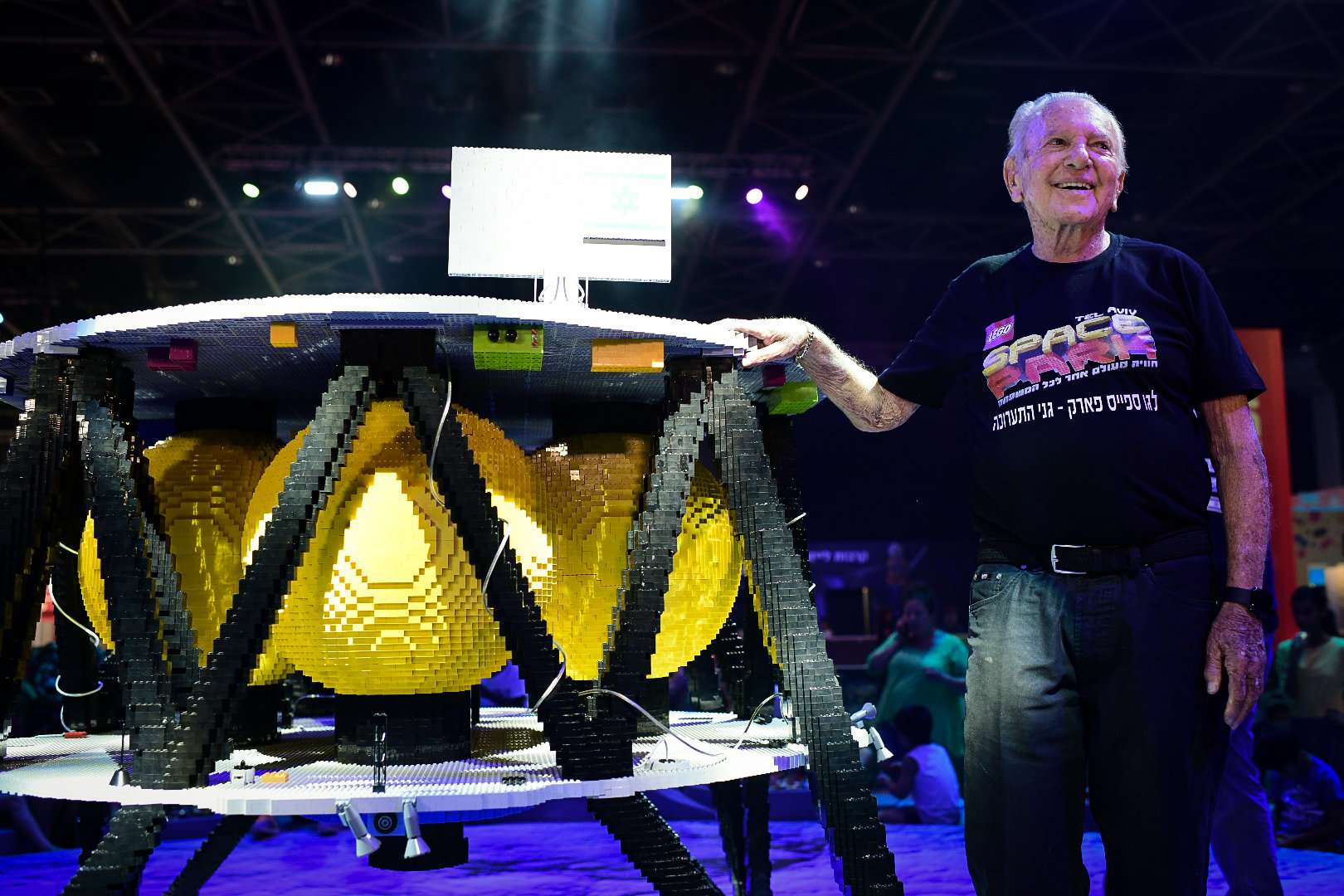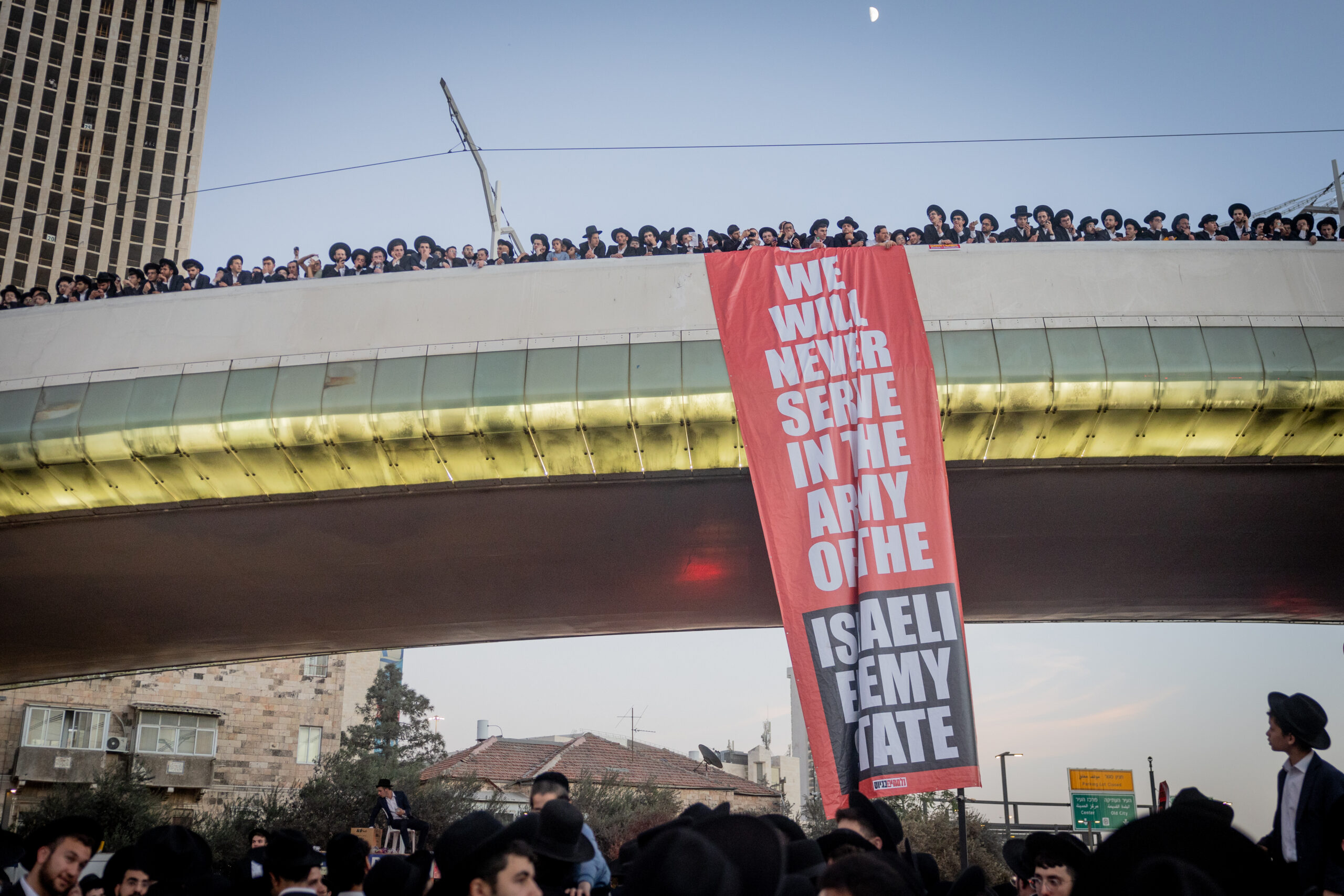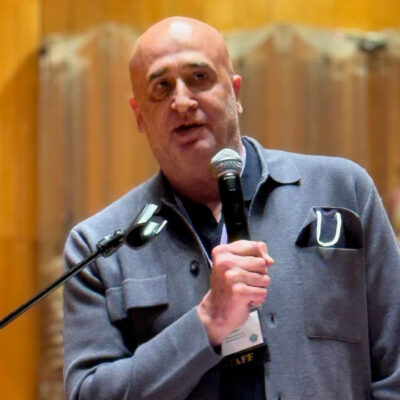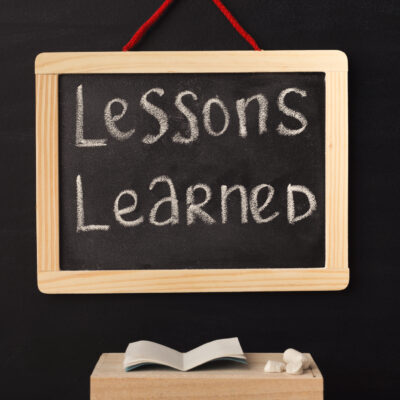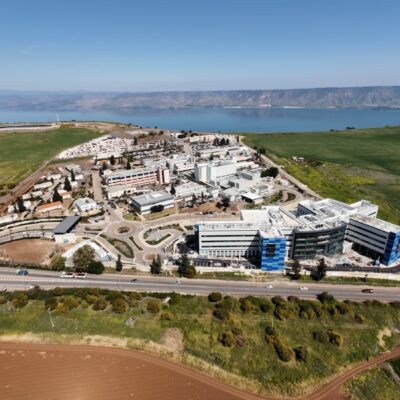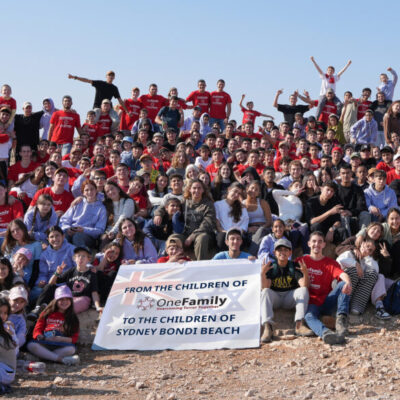PARADIGM SHIFT
Citing the ‘pure evil’ that befell the Bibas family, Rabbi Ammiel Hirsch says he’s lost faith in the two-state solution
With his Friday night sermon, the senior rabbi of NYC's Stephen Wise Free Synagogue moves away from his movement's position, which one Reform Zionist leader says is understandable

Screenshot
Rabbi Ammiel Hirsch speaks at the Stephen Wise Free Synagogue in New York City on Feb. 28, 2025. Screenshot
Rabbi Ammiel Hirsch, senior rabbi of New York City’s Stephen Wise Free Synagogue and a former head of the Association of Reform Zionists of America, declared that he no longer believed in the two-state solution to resolve the Israeli-Palestinian conflict, at least not in his lifetime — a move that seemingly puts him outside the American Jewish consensus.
Speaking at his synagogue on Friday night, Hirsch said he reached this conclusion after witnessing Shiri, Ariel and Kfir Bibas’ remains be returned to Israel and buried.
“This was the week that finally ended the hope — at least in my lifetime — for a Palestinian state and a Jewish state existing side by side. The Palestinians themselves strangled this fragile hope in its crib. I am deeply saddened because I am committed to peace and coexistence. I have been my entire life,” he said.
“After 16 months of keeping it together, my heart finally cracked. The plight of the Bibas family struck me so deeply that I do not even know where to place all of these emotions running rampant inside of me… It is what the Biba’s family symbolizes — the concretization and normalization of pure evil in the face of pure innocence that finally crushed me this week,” Hirsch said. “Of course, there are many decent, kind, peace-loving Palestinians. But the polite lie that we tell ourselves over and over again is that Hamas does not represent the Palestinians. It is simply not true. We recite this like a mantra so that we do not have to face the terrible truth that Hamas is the Palestinians, that ‘Palestinian-ism’ is more about destroying the Jewish state than creating a state of their own. How many times do we need to hear the word ‘no’ before we accept that when the Palestinians say ‘no,’ they mean ‘no’?”
In publicly abandoning the two-state solution — at least for now — Hirsch, who has been increasingly critical of his denomination’s institutions post-Oct. 7, further distances himself from the Reform movement, which still officially supports the creation of a Palestinian state alongside a Jewish one. He also breaks with most other mainstream American Jewish groups, which have maintained their support for the two-state solution over the past 16 months.
While public opinion polls show that Israelis have lost faith in the prospects of the two-state solution over the past 20 years, more than twice as many American Jews support the two-state solution (46%) than support an Israeli-controlled one-state solution (22%), even after the Oct. 7 terror attacks, according to a Pew Research Center poll from last year. Yet in the wake of Oct. 7 and the responses to it in Palestinian society, skepticism regarding the feasibility of a two-solution has gained traction both in Israel and abroad.
Rabbi Josh Weinberg, executive director of the ARZA and vice president of the URJ for Israel and Reform Zionism, told eJewishPhilanthropy that the Reform movement, as a rule, does not comment on the sermons of individual rabbis. But he said that he understands the profound impact that the Oct. 7 attacks, the past 16 months of war and the recent weeks of hostages being released have had on the Jewish community.
“There’s no question that the events of Oct. 7 have left a massive impact not only on Israel but also on Diaspora Jewry and caused many people to rethink their positions, on all sides of the spectrum,” he said. “Not only Oct. 7 but the 16 months of war, and we are deeply, deeply impacted by the scenes both the day that the Bibas family was returned — the whole debacle of Hamas sending the wrong body [of Shiri Bibas] and the small coffins in this sick spectacle of a ceremony — and of course [the funeral] the week after.”
Weinberg said the Reform movement, as a movement, remains committed to the two-state solution and that there is no immediate intention to reconsider that position.
“We’re the Reform movement so I would say there are few things that are set in stone, per se. Things change. But I don’t see that happening tomorrow,” he said.
Yet Weinberg said that he too doubts the feasibility and reasonability of creating an independent Palestinian state in the short term, yet remained committed to some equitable resolution eventually.
“I think we don’t have a choice but to push for some end of conflict. Do I know that is going to look like a two-state solution tomorrow? I think we all know the answer to that,” he said. “But I think in the future, our job is also to give hope and push forward.”
In his sermon, Hirsch said he hoped to be proven wrong. “Never is a long time. But how do you make peace with such neighbors now? I hope I am wrong,” he said. “I hope that within a decade you pull out this sermon from our archives, wave it in my face and offer the incontrovertible truth that I was wrong. Nothing would please me more.”

 Add EJP on Google
Add EJP on Google


